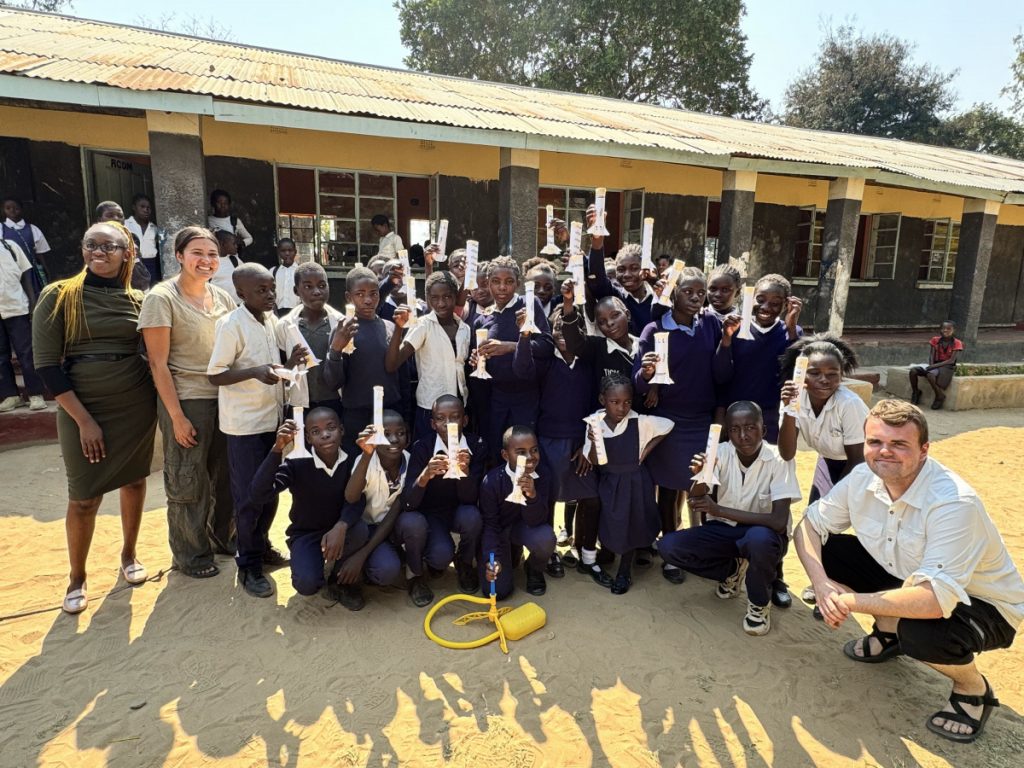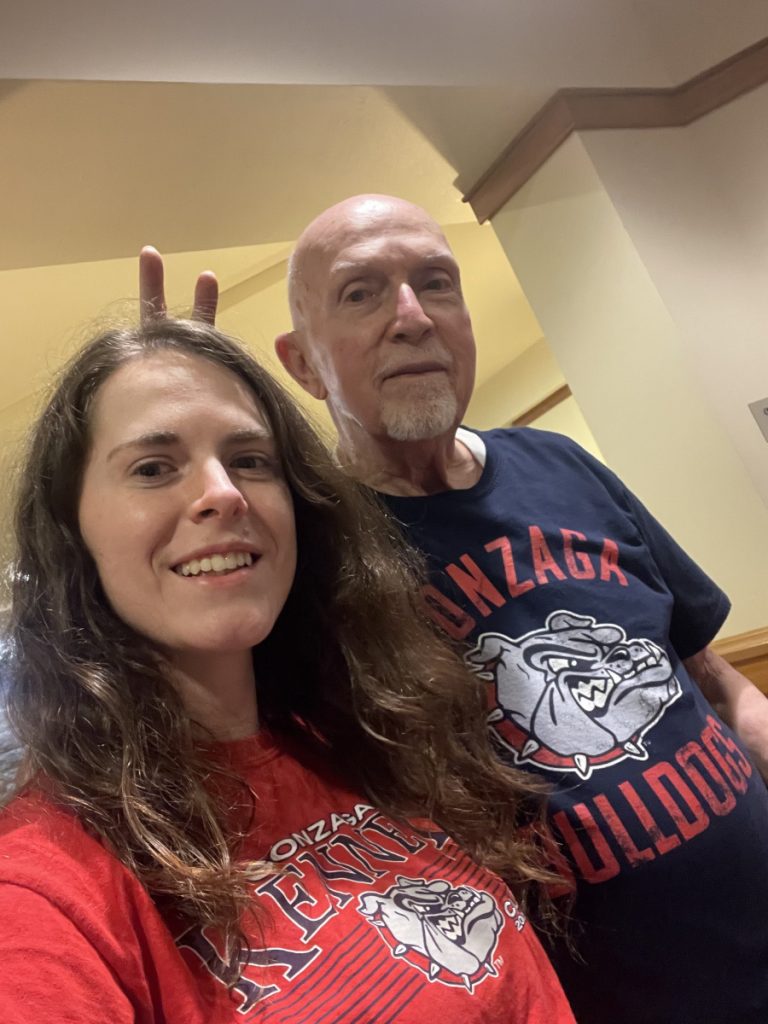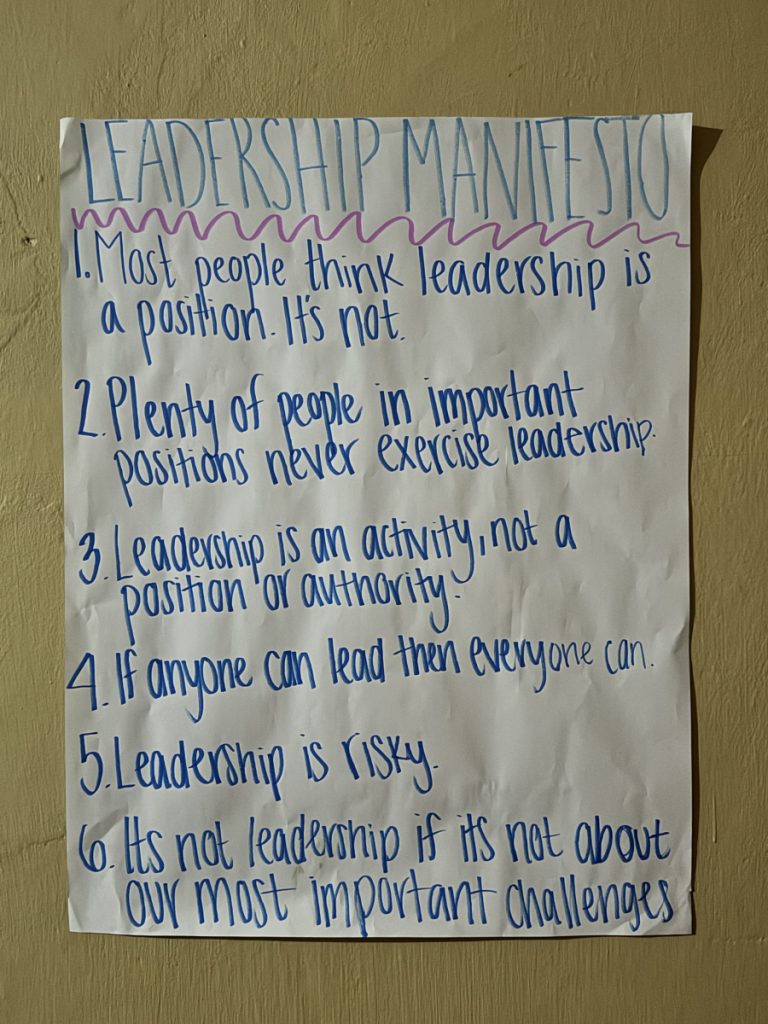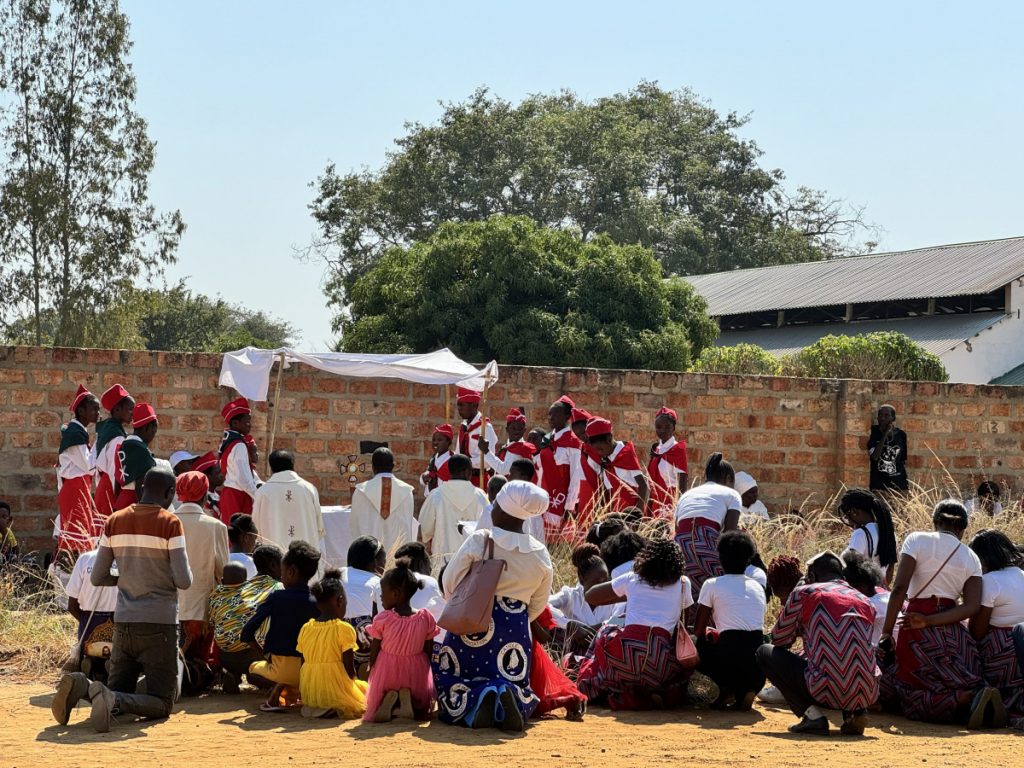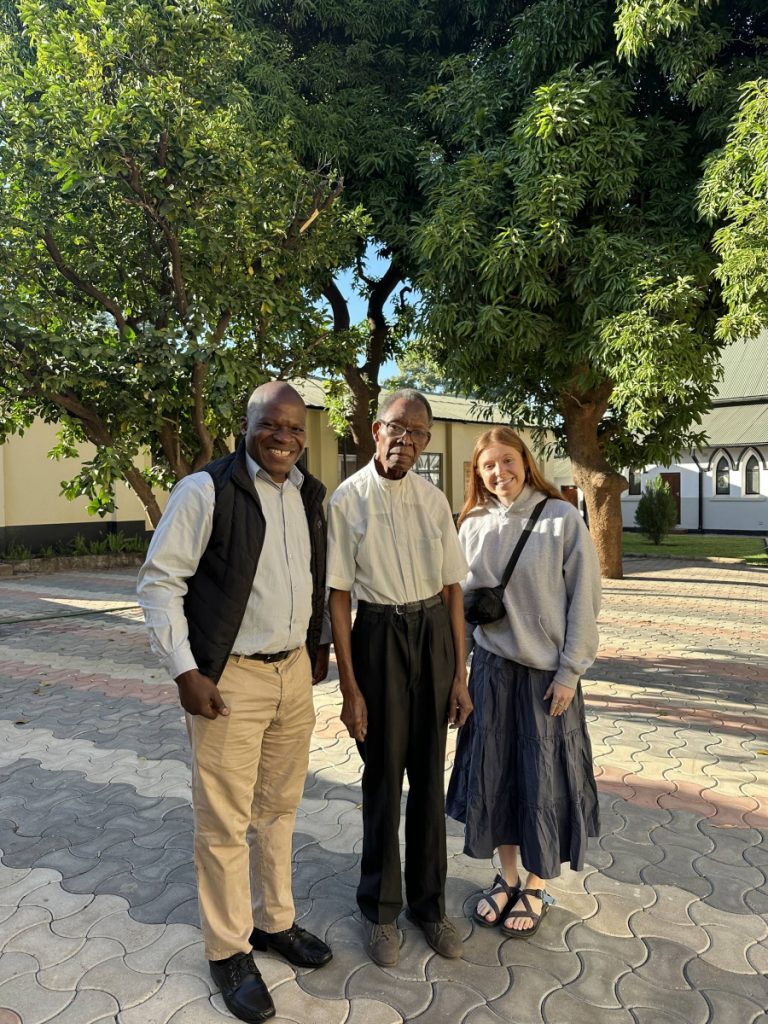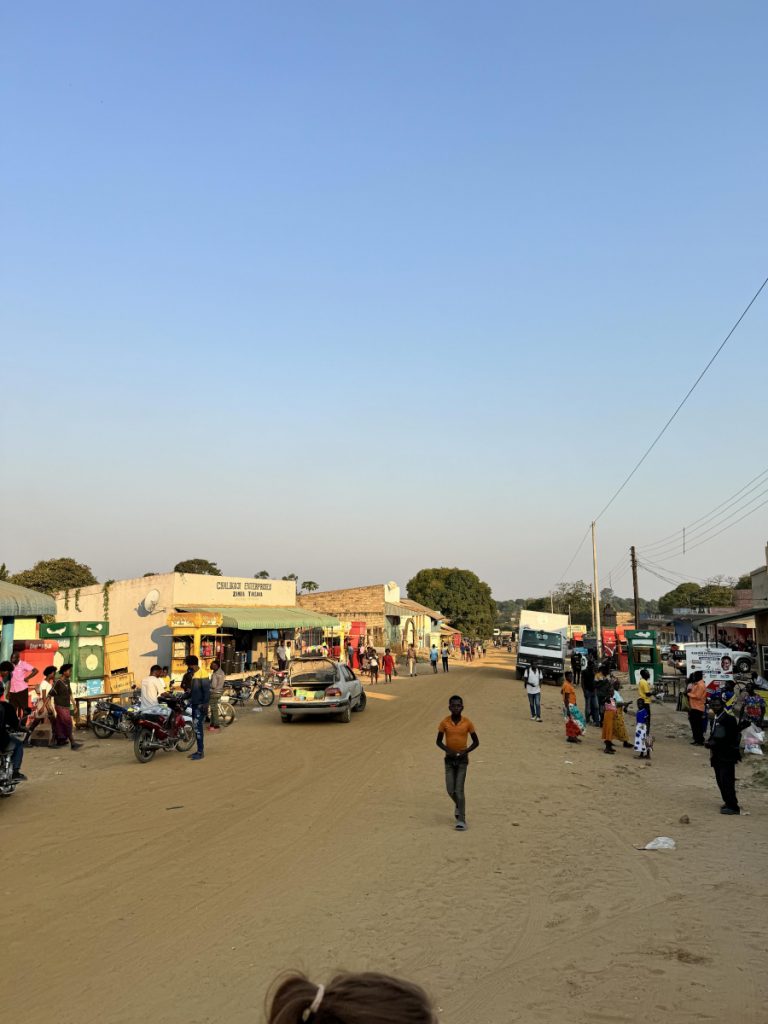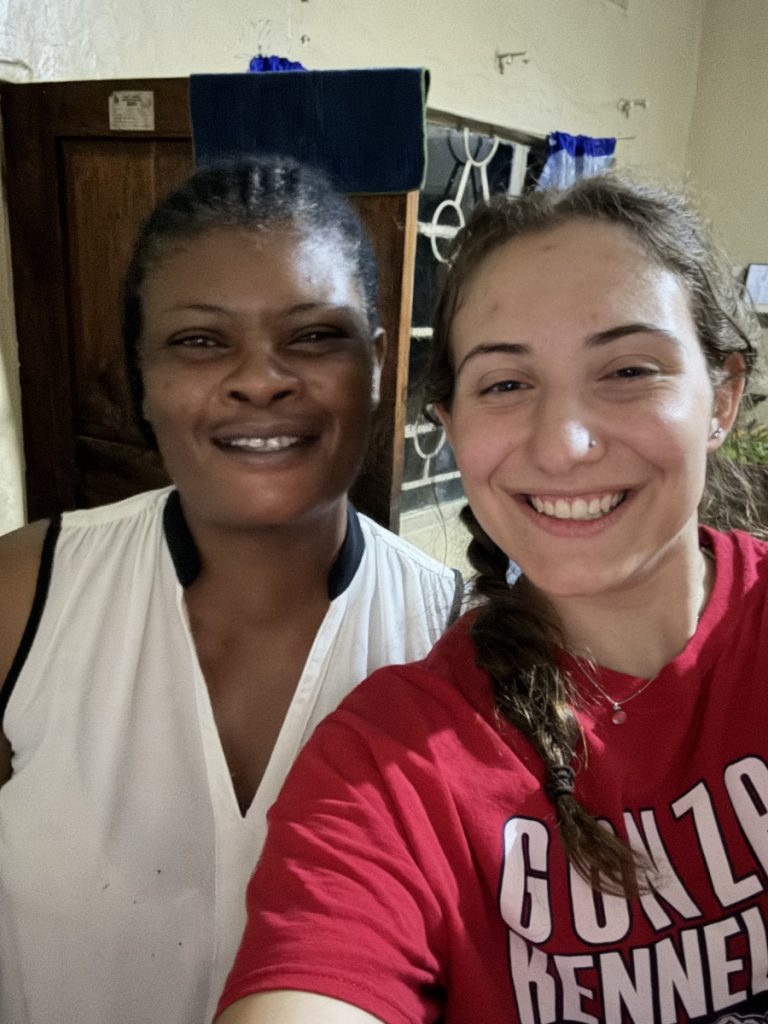After a warm welcome to Dipalata, a rural village a quick and bumpy 40 minute ride away from the convent and also our cozy home for the night, the crew began to unload the two land cruisers packed full like clown cars. While setting up the beds for the night, which consisted of mats, blankets, and pillows in a long hallway (perfect slumber party conditions), I started to hum whatever tune was in my head at the moment. In response to this, Josh turns to me, laughs a little, and asks “You just sing through life, don’t you?”
If you are close to me or have been living in the Convent with me for almost a month, you know the answer to this question, but for those of you who don’t, let me explain. My whole life has been one defined by tunes and rhythms that satisfies that one part of your brain that makes it so you can’t help but tap your foot. For example, it’s been said that I could sing all the words to ‘you’re the one that I want’ from The Grease soundtrack before I could talk and I could dance well before I could walk, specifically on the kitchen counter in little pink cowboy boots while apple bottom jeans is playing.
Now, in Zambia, I have been given the advice from former zam zag, Ethan Kane, to attach experiences to our senses. Given the short background I’ve given, I think it’s apparent that one of the senses stands out to me. Hearing. This practice has heightened the emotions that I’m feeling and entertaining that one part of my brain that longs for sounds. I’d like to share some examples of how living through listening has impacted my time here in Zambia.
ONE
Mama’s Assistant. I have just spent the day being Mama Katendi’s assistant, aka I help make lunch and dinner and assist with the background chores that might have gone otherwise unnoticed. For dinner, I decided to make BBQ pulled chicken sandwiches, cornbread, and a side cabbage salad (to my family: yes, I was covered in the BBQ sauce by the end of the meal). While sitting outside cooking, I took a breath, noticed my surroundings, and listened. The sky in front of me, a mix of pink, orange, and red that you don’t see anywhere but here. The bread and butter sizzling when it meets the pan heated by the fiery coal in the brasier. The sweet BBQ sauce boiling in the pot popping every now and then reminding me to give it another taste test. Andy Grammars “Keep your head up” playing on the speaker in the distance. Laughter coming from children playing in the back of the convent with our finest yoga, dance, volleyball, and soccer instructors. The breeze rustling through the trees causing the branches to sway. These sounds only broken by the Mama’s coming outside to sit with me. The conversation that followed was one of noticing, listening and hearing.

TWO
Home Stays. Brynn and I set off to stay the night with a beloved member of the community, Mama Winfrieda. She volunteers Monday-Friday from 8am-4pm to test people for HIV/AIDS and visit and assist members of the community that have been affected by this disease. When we arrive, we fall upon a scene of a celebration. Around 30 friends and family gathered in her backyard. Women cooking up a meal of nshima, greens, and chicken. A couple women and men dancing, called out to us in hopes that we will join. My cheeks get flushed and I get warm with embarrassment due to the fact that I am a Chindili (western/white person) who cannot move her hips like they’ve been trying to show us. Though this embarrassment was short-lived, as I allowed myself to take a breath, notice my surroundings, and listen. Listen to the banging of the drums. The laughter and joy that comes from a reunion of friends and family. The communion of multiple voices coming together to sing harmoniously. Listening. It reminded me of that part of my brain that was longing to be itched. The part that makes me tap my feet. The part that doesn’t care if others are watching. The part that wants to put on her pink cowboy boots and get on the countertops, but instead I wanted to put on my chetangi and shake my hips as best I could with the people that have welcomed me into their homes so generously.
THREE
Car Rides. Being in Zambia has consisted of many car rides, whether the nine hour ride from Lusaka to Livingstone or the 30 minute ride to Chitokoloki. These rides have been what I would compare to your average family road trips. Full of “how much longer”’s, lotsssss of snacks, good conversation, and a bit more singing than I think some of the group wishes. Sitting in the quaint backseat of the Land Cruiser can be a bit crammed and the bumps will most definitely require a visit to the chiropractor, but these close corners allow me and my fellow Zam Zags to truly get to know each other through, you guessed it, taking a deep breath, noticing my surroundings, and listening. Driving through the bush, watching as the world disappears behind us. Conversations prompted by questions like, “what’s your happiest memory?”, “in another life, what job would you want?”, and my personal favorite, “what’s you spirit animal?”. These conversations give me even more of an insight on who these 14 people I’ve really gotten to know and consider my family are. When these car rides are not met meaningful conversation, they are certainly matched with some very beautiful and lovely singing of all your favorite Disney classics and maybe a little Hamilton… Being free to belt these songs with others reminds me that we all have that part of our brain. That makes us almost childish in a way. Singing without a care and laughing at just how much fun we are having in a very crowded, less than ideal, incomparable to the rosa deluxe, basic Land Cruiser. Here, I get to listen to the children in us all as we laugh, sing, and shout “are we there yet” to our two dads, Josh and Jeff.

FOUR
Dipalata Campfire. Sitting at dinner in Dipalata, I overhear the faint singing of children. I quickly shovel down my food knowing I have to get to the music. Walking towards the sounds, I come to recognize the song. It’s one that we have been learning in our language lessons everyday at 12. We all gather around the well populated fire place and begin to sing the songs with the children. This. This is the moment of connection I have been yearning for. A feeling of complete harmony and unity overcomes my being and transcends words. I don’t even need to take a second to take a deep breath, notice my surroundings, or listen. I began to do it all involuntarily. The stars above shined by the dozens and brighter than any I’ve ever seen. The fire below warmed the soles of my feet. The flaming blue and purple root of the fire danced around the logs just as we all were dancing with one another. The orange of the fire projected onto the faces of all those gathered around the campfire illuminating the countless smiles. More than 200 voices joined together, to sing a song as one. Each voice unique, but as a whole created a perfect blend of song. A memory I will forever remember through the sounds. The sounds of community. The sounds of rejoice. The sounds of glee. The sounds that quenched the yearn that come from that part of my brain. The part that listens. The part that hears. The part that loves.

To my loving family, my 714B girls, and my friends, I can’t wait to talk to you all soon and hear your sweet voices again, for I’ve missed them dearly. I love you all with my whole heart. Say hi to Ollie and Cholula for me 🙂
With tremendous amounts of love,
Katie Harris 25′

